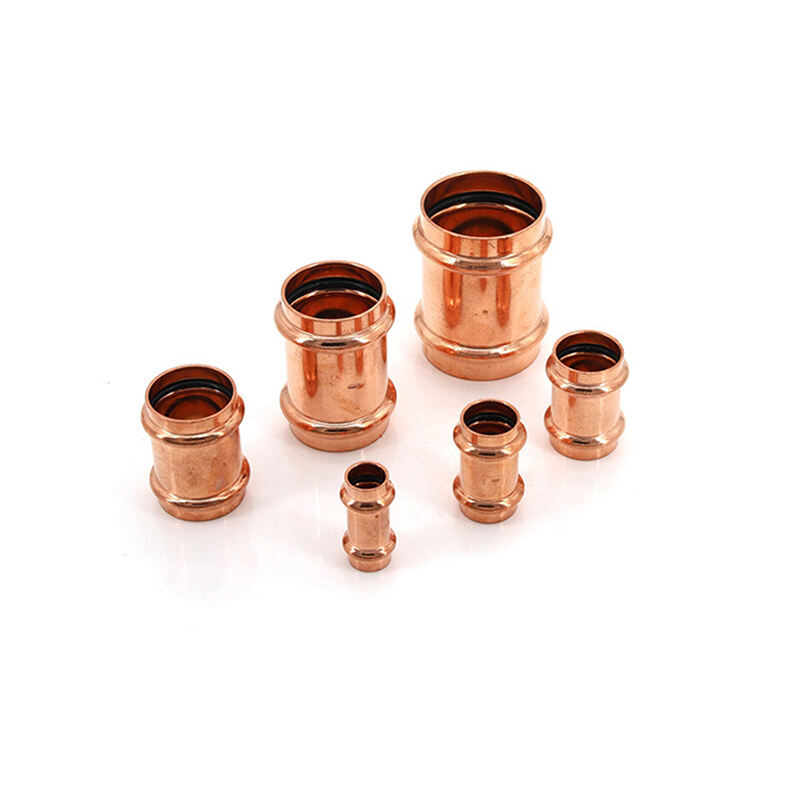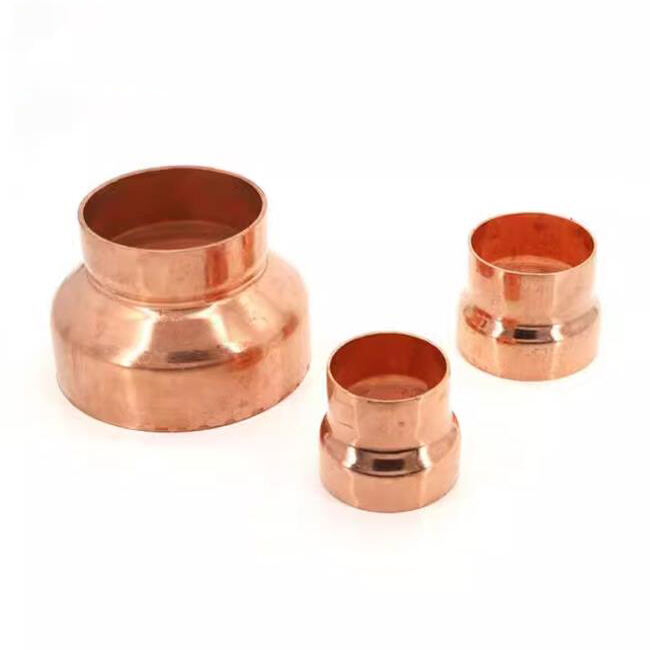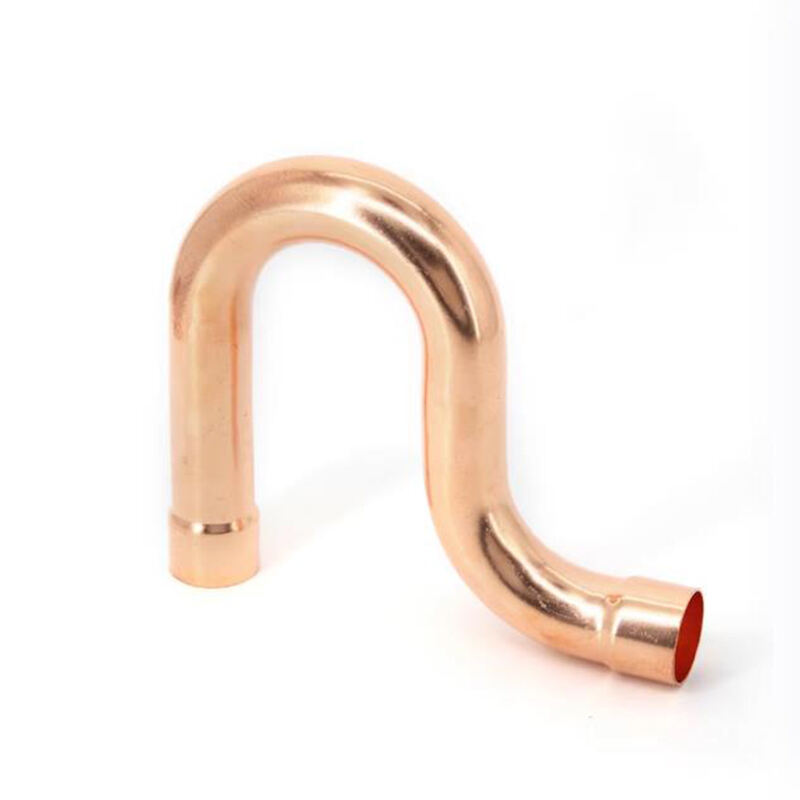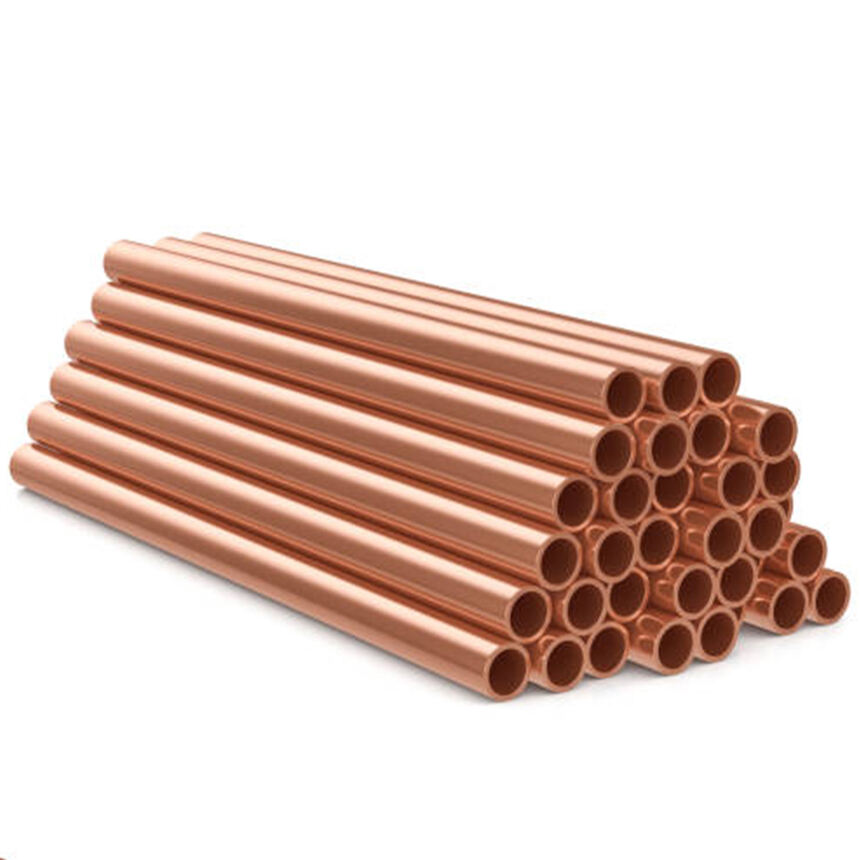Durability and Longevity of Copper Plumbing Systems
Superior Lifespan Compared to Alternative Materials
When it comes to how long they last, copper pipes really stand out compared to plastic options. Most copper installations can go well past 50 years before needing replacement, while plastic counterparts usually only last between 20 and 40 years at best. According to data from the International Copper Association, around 70 percent of copper pipes installed half a century ago are still working just fine today. Why does copper hold up so much better? Well, copper naturally resists corrosion and doesn't degrade the same way plastics do over time. What makes this possible is the formation of a protective oxide layer on the surface that shields the metal from damage. Because of these properties, copper maintains its strength and shape inside plumbing systems for many decades. Homeowners benefit too since there's no need to replace or repair copper pipes as often as plastic ones, which saves money in the long run when thinking about overall plumbing costs.
Resistance to Extreme Temperatures and Pressure
Copper pipes can handle some seriously extreme temps, working well between about minus 40 degrees Fahrenheit all the way up to 200 degrees F. That makes these pipes good choices for places with pretty much any kind of weather. Plastic tends to get brittle when it gets cold outside, but copper stays strong no matter what season we're in. When it comes to pressure, copper really shines too. These pipes can take on pressures as high as 500 pounds per square inch, which beats most other materials hands down. The brass fittings and copper connectors work great together, creating a plumbing system that stands up to tough jobs while keeping everything safe and running smoothly. For homes and businesses alike, this kind of durability matters a lot because buildings face all sorts of temperature changes and pressure needs day after day.
Natural Antimicrobial Properties for Safer Water
Copper pipes have a natural ability to kill microbes, which makes them important for keeping our water supplies safe. Research from the Journal of Environmental Health shows copper surfaces get rid of about 99.9% of bacteria after only two hours sitting there. That means fewer germs growing inside the pipes themselves. For building owners and plumbers concerned about public health, this property helps maintain cleaner running water throughout buildings, cutting down on illnesses caused by contaminated tap water. With increasing concerns about what's actually coming out of our faucets these days, copper's built-in germ fighting powers make it an attractive option when designing new plumbing systems or upgrading old ones.
Protection Against Pipe Degradation and Leaks
The way copper naturally resists corrosion really cuts down on pipe breakdowns and leaks as time goes on, which means plumbing systems stay functional for longer periods. Studies have shown older copper pipes tend to corrode much slower than many alternative materials, so they need fixing less often throughout their life. The lasting nature of copper keeps water pressure stable and flowing properly while saving money in the long run since there are fewer maintenance calls and repairs needed. For this reason, going with copper pipes makes good sense for home owners looking at their kitchens and bathrooms, as well as businesses wanting reliable plumbing that won't fall apart after a few years, protecting their investment against those frustrating pipe problems we all know too well.
Thermal Efficiency in Home Heating and Cooling
Optimizing HVAC Performance with Copper Pipe Connectors
Adding copper fittings to HVAC systems really makes them work better because copper conducts heat so well. When copper is used in these systems, heating and cooling happens faster throughout buildings, and temperatures stay more consistent from room to room. This means less energy gets wasted overall. Research across the HVAC field shows that switching to copper pipe connections improves system performance while cutting down on wasted energy. For any building looking to save money on utility costs without sacrificing comfort, these improvements matter a lot. Many facility managers have reported noticeable reductions in monthly energy expenses after making the switch to copper components.
Energy Savings Through Superior Heat Transfer
For transferring heat around the house, copper piping just beats out plastic options hands down. Copper conducts heat about 25 percent faster than plastic does, which means heating systems don't have to work as hard to keep things warm. That translates to real money saved on monthly bills for most households. Boilers and radiators connected via copper lines tend to perform better because the metal transfers warmth so efficiently. Homeowners switching from plastic to copper in their central heating setup typically notice smaller utility expenses after installation. Plus there's the environmental angle worth considering too many homes using copper instead of plastic could cut down significantly on carbon emissions related to space heating across neighborhoods and cities alike.
Copper vs Plastic Pipes: Health and Safety Advantages
Eliminating Microplastic Contamination Risks
When it comes to choosing between copper and plastic pipes, copper stands out as the safer bet mainly because it gets rid of the whole microplastic problem that plagues plastic systems. Research indicates that tiny plastic particles actually seep into our water from plastic pipes over time, and this poses real health concerns for people drinking that water. Copper just doesn't break down into microplastics like plastic does, so the water stays clean and safe without those nasty contaminants getting in there. For anyone worried about what's really in their tap water and how healthy it actually is, going with copper pipes makes a lot of sense. It's why many municipalities still prefer copper despite the higher upfront costs.
Fire Resistance and Structural Integrity
Copper pipes stand up better to fires because they have a much higher melting point than plastic ones, making them a safer choice for home plumbing systems. When wildfires sweep through an area or temperatures spike during heatwaves, copper doesn't melt or deform like plastic does. Homeowners in these risky zones get real peace of mind knowing their water lines won't fail when it matters most. The metal just keeps going strong even after years of service. This makes copper especially valuable in places where extreme weather events are becoming more common these days.
Sustainable Choice for Modern Water Infrastructure
100% Recyclability and Environmental Benefits
In plumbing circles, copper pipes really shine when it comes to being able to recycle over and over again without losing their quality, which makes them popular among those who care about green building practices. When we talk about recycling copper, it actually takes way less energy compared to getting fresh copper from mining operations. We're talking around 15 percent of what would normally be needed. Less energy means fewer greenhouse gases floating around in our atmosphere, plus we get to keep some precious natural resources intact. For anyone involved in infrastructure work today, going with recycled copper isn't just good for the environment, it's smart business too since it helps cut down on all that stuff ending up in landfills across the globe.
Reducing Waste Through Decades-Long Service Life
Copper pipes cut down on waste because they last so darn long. Most other materials need replacing every few years, but copper hangs in there for decades without breaking down. According to research published last year, homes that switch to copper plumbing save around 40% on maintenance expenses over time. That speaks volumes about how tough these pipes really are. Homeowners who care about going green will find copper especially appealing since it means buying less stuff overall. The same goes for factories and commercial buildings looking to shrink their environmental footprint. When companies invest in something that doesn't break easily, they end up spending less money fixing things later on, which makes sense both financially and environmentally speaking.









